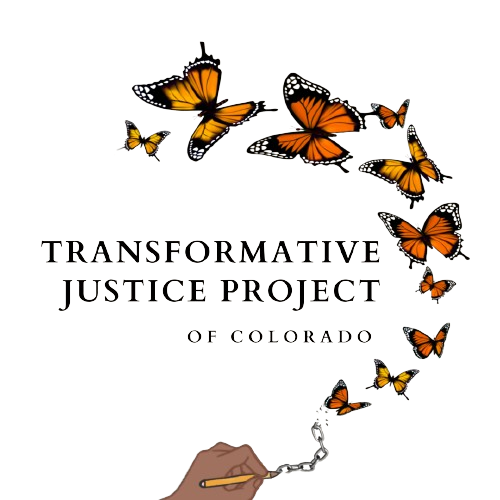2020 LEGISLATIVE SESSION
HB 20-1079 Juveniles on the Colorado Sex Offender Registry: CJDC Position SUPPORTSafer, Smarter and More Humane Registration For Kids
House Bill 20-1079 is the result of multiple years of collaboration between prosecutors, defense counsel, victim advocates and the Colorado Sex Offender Management Board (SOMB), and received from the Legislative Oversight Committee Concerning the Treatment of Persons with Mental Health Disorders in the Criminal and Juvenile Justice Systems.
HB 20-1079 Makes Three Key Changes
I. Registration based on risk, not offense
Current law requires judges to order juveniles who have committed certain crimes to register
This bill expands judicial discretion, allowing the court determine if the juvenile must register if the juvenile has no prior sex offenses and the SOMB evaluation recommends no registration.
II. Ends mandatory lifetime registration for juveniles
Current law requires judges to order juveniles fund guilty of more than one sex offense (one case with multiple counts or more than one case) to register for life.
This bill ensures that juvenile adjudications alone may not trigger mandatory lifetime registration
III. Makes juvenile registry information available to only those who need to know
Current law places juveniles on a public registry
The bill limits access to juvenile registration information to law enforcement, probation, parole, the division of child welfare, victims and persons who request information about a specific individual under certain restrictions and clarifies that juveniles should not be placed in an online registry.
SB 20-076: Parole Eligibility for Youthful Offenders: CJDC Position: Support
This bill brings our parole eligibility system into accordance with current adolescent brain development research by giving young adults the opportunity to show that they deserve a second chance. It allows the parole board or the governor to release offenders who committed their crimes when 18-24 years old if they have been model prisoners and exhibited exceptional behavior. The bill recognizes that juveniles have the capacity for change, rehabilitation and redemption, and thus expands eligibility for a successful DOC program.
The bill offers 2 paths for parole release. Section 1 makes an offender serving a sentence in the department of corrections for a felony offense that was committed while the offender was 18 to 24 years of age eligible for parole after the offender serves 50% of the sentence and after the offender has served at least 15 calendar years in prison. There is a presumption, subject to the parole board’s discretion, that the offender will be released on parole if the offender has not had any code of penal discipline violations in the last 5 years and no class I code of penal discipline violations in the last 10 years. Section 2 expands DOC’s JCAP program eligibility to persons serving a sentence for a felony that was committed when the person was 18 to 24 years of age. The department of corrections operates JCAP, a specialized program developed in 2016 for offenders who are serving a prison sentence for a felony offense committed while the offender was a juvenile as a result of criminal charges filed by direct file or transfer proceedings. Persons are not eligible for that program until they have served 20 calendar years for some offenses and 25 calendar years for others. The program lasts from 3 to 5 years and upon successful completion, the offender can request early parole and it is presumed that the statutory criteria for early parole have been met.
HB 20-1238 Safe and Healthy Learning Environments For Students: CJDC supports this bill and our community partners championing it: Padres & Jóvenes Unidos
The bill requires the department of education (department) to give preference to grant applicants that articulate a strong, comprehensive approach to significantly reduce the use of school policing, school resource officers, and invasive security technologies and practices, and implement evidence-based or promising practices designed to promote school safety and healthy learning environments. The department shall also give preference to grant applicants that demonstrate the applicant’s current use of evidence-based or promising practices designed to promote school safety and healthy learning environments.
The preference criteria only applies to the student re-engagement grant program, the expelled and at-risk student services grant program, the school bullying prevention and education grant program, and the behavioral health care professional matching grant program.
HB 20-1287: Colorado Rights Act: CJDC Supports this Bill
The Colorado Rights Act would allow Coloradoans to seek justice in Colorado courts when their state constitutional rights have been violated. This bill would protect Colorado values and law by allowing Colorado judges and juries to decide whether Coloradoans have suffered a state constitutional violation, rather than leaving Coloradoans to file constitutional suits in federal court and solely to enforce the federal constitution.
Qualified Immunity: Importantly, this bill would ensure Colorado courts do not import the federally created and highly suspect doctrine of qualified immunity. Qualified immunity is a legal doctrine invented out of whole cloth by the U.S. Supreme Court that protects government agents, including particularly law enforcement officers, who violate someone’s constitutional rights from federal civil liability
The bill’s application to kids in the criminal legal system is potentially wide reaching. The youth we serve are too often the victims of police harassment and brutality, and often suffer violence, solitary confinement and other mistreatment at the hands of DYS staff as well. The CRA will open up a new venue in state court by allowing damages claims and providing attorneys fees for prevailing plaintiffs for this kind of misconduct. In progressive cities, that would mean a more progressive jury pool for trial. For all locales, there would be the option of appeal to the CO Supreme Court.
